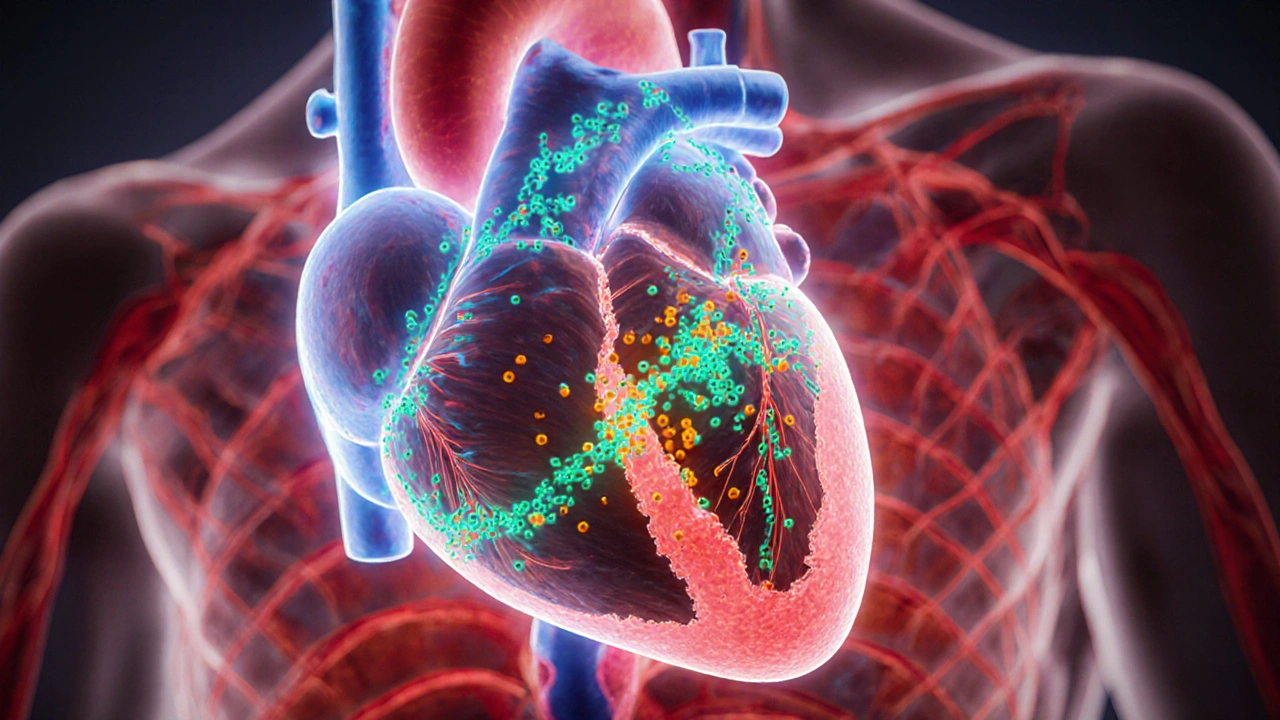Heart Disease
When talking about heart disease, it's helpful to start with a clear definition. Heart disease, a group of conditions that affect the heart's structure and function. Also known as cardiovascular disease, it includes everything from blocked arteries to weakened heart muscle. One of the most common forms is Coronary artery disease, the narrowing or blockage of the coronary arteries that supply blood to the heart muscle, which often leads to chest pain or heart attacks.
Understanding how heart disease develops means looking at its major risk drivers. Hypertension, consistently high blood pressure that strains the heart and blood vessels, is a top contributor. Pair that with Atherosclerosis, the buildup of fatty plaques inside arteries that narrows the passage for blood, and you have a recipe for reduced oxygen flow and heart stress. Lifestyle habits such as poor diet, lack of exercise, smoking, and excessive alcohol amplify these conditions, turning a manageable risk into a serious health threat.
Once heart disease takes hold, treatment options aim to relieve symptoms, halt progression, and improve quality of life. Medications like Empagliflozin, an SGLT2 inhibitor originally for diabetes that also reduces heart failure risk, illustrate how drugs can target multiple pathways. Heart failure, the condition where the heart can't pump enough blood to meet the body's needs, often follows prolonged strain from hypertension or coronary blockages. In addition to drugs, doctors recommend dietary changes, regular aerobic activity, and weight management to lower the workload on the heart and improve vascular health.
Prevention starts with early detection. Routine blood pressure checks, cholesterol panels, and simple stress tests can spot trouble before symptoms appear. If you have a family history of coronary artery disease or heart failure, personalized screening becomes even more critical. Small daily actions—like swapping sugary drinks for water, walking 30 minutes most days, and quitting smoking—create a protective buffer against atherosclerosis and keep blood pressure in a healthier range.
The articles below dive deeper into each of these areas. You'll find practical guides on buying affordable medications, tips for managing related conditions, and the latest comparisons of drugs that impact heart health. Use this collection to arm yourself with the knowledge you need for smarter decisions about heart disease prevention and care.

How Folate Deficiency Impacts Cardiovascular Health: Causes, Risks, and Prevention
Learn how folate deficiency raises homocysteine, damages arteries, and increases heart disease risk, plus practical diet and supplement tips to protect your cardiovascular health.
More Detail